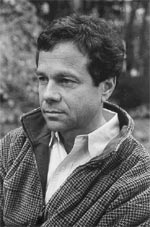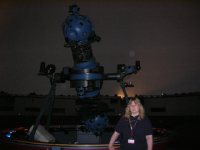Note: This story was broadcast by the WGBH affiliate WCAI, the Cape and Islands NPR station and by KPIP in Missouri. It is also featured on NHPR.org.
You’re about to hear a story about the bear whisperer of Lyme New Hampshire, Ben Kilham, and the abandoned black bear cubs he has rescued, rehabilitated and released back into the wild. Some of these cubs have formed such strong bonds with Ben, that even when they’re fully grown, they still treat him as a member of the family, so to speak, and allow him special access to their bear secrets and behavior. And on occasion, if I promise to be quiet, and obey the rules, I get to tag along –
This video of Squirty and Ben in the clearing is a rather noisy appetizer.
Click here:  (17 minutes) for the story.
(17 minutes) for the story.
Ben Kilham is one of the foremost black bear researchers and rehabilitators in the country, and here he is, with one of his star bears, Squirty, now 17 years old. He took care of her and her siblings after they were separated from their mother during a logging operation that had disturbed her den. She, along with many other orphaned or abandoned cubs, has taught Ben the characteristics of black bear behavior, which share some surprising similarities to our own species. For one thing, once thought to be solitary, Ben has discovered that they are often quite social!
Ben’s featured in several nature documentaries, and he is also the author of two books — Among the Bears: Raising Orphaned Cubs in the Wild, and Out on a Limb: What Black Bears Have Taught Me About Intelligence and Intuition, with a foreward by Temple Grandin, which was just released this fall. ThoughtCast has also interviewed Ben’s sister and colleague, Phoebe, and the interview, accompanied by a slide show of their bear cubs, was posted on New Hampshire Public Radio’s website this spring, and can be seen here.Podcast: Play in new window | Download
Subscribe: RSS


 The
The 

 As part of the
As part of the